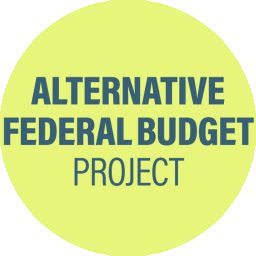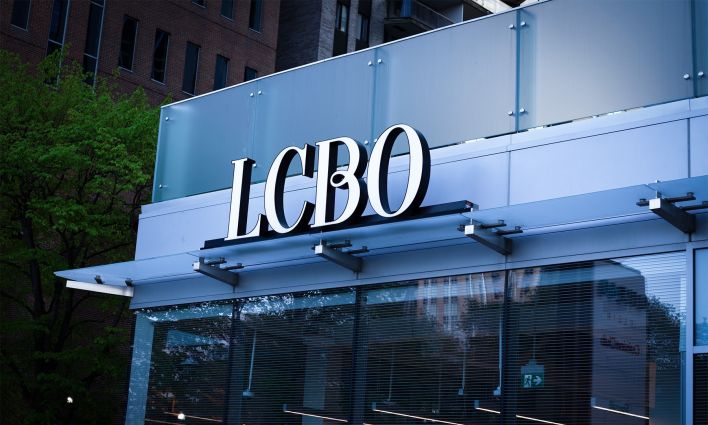Introduction
Despite its self-image to the contrary, Canada’s immigration and refugee system has persistent and ever-deepening inequities and contradictions rooted in historic and systemic racism and discrimination. The greatest disadvantages are felt by people at the intersections of diverse identities, particularly who are Black and otherwise racialized, women and gender diverse people, LGBTQQIA+, and people who live with disabilities.
Overview
Humanitarian obligations
The expansion of the Canada-U.S. Safe Third Country Agreement (STCA) in early 2023 prevents entry for many who seek to enter Canada to make a refugee claim. The migrants Canada sends back to the U.S. are at risk of arbitrary detention and deportation to countries where they would face persecution and possibly death. The Supreme Court of Canada has since acknowledged that “refugees sent back to the U.S. face real risks of rights violations” and has directed the federal court to determine whether the STCA breaches gender equality rights under the charter.1
Canada has only limited, and sometimes non-existent, responses to humanitarian crises around the world—particularly in countries with majority racialized and Muslim populations. Canada’s response to the humanitarian crisis in Ukraine, in contrast, exemplifies how countries should respond to people seeking safety. The federal government facilitated travel, allowed entry to displaced people, provided work permits or extensions to existing permits, and granted access to housing, health care, education and services.
Refugee claimants in communities across Canada face a shelter and housing crisis, and a generalized lack of information, support and services. The federal government bars claimants, as well as other temporary residents and people without immigration status, from accessing federally funded immigrant and refugee settlements services and supports.
Immigration status
More than half a million people in Canada are without immigration status—some for many years; and often due to structural barriers in the immigration and refugee system.2 The federal immigration system denies people without immigration status basic rights to housing, health and education—who are more likely to face discrimination, abuse and exploitation.
The Minister of Immigration was directed in December 2021 to find ways to regularize the status of undocumented workers.3 A regularization program must be broad-based4 to allow everyone without immigration status in Canada to gain full legal resident status, and live in dignity and without fear. As of the time of writing, no program has been introduced, despite migrant-led organizing and support from communities across Canada.5
Temporary migration
For more than a decade, Canada has brought in more people as temporary residents—primarily migrant workers and migrant students— than as permanent residents. In 2022 Canada admitted 437,180 permanent immigrants compared to 607,782 non-permanent residents.6
Migrant workers in low-wage work, and seasonal agricultural workers, are excluded from permanent resident (PR) programs. The government typically denies them the right to unionize and bargain collectively, and the workers cannot cannot change employers in certain programs.
Canada has recruited large numbers of migrant students for several years. Few of them will qualify for PR because of the immigration program’s systemic barriers and exclusions. Migrant students face widespread abuse and exploitation by recruiters, educational institutions and employers—and have little recourse to assert their rights.7
Migrant workers and students, and others with temporary and precarious immigration status are not allowed access to federally-funded programs and services, despite contributing financially to Canada’s GDP, and contributing in other ways to their communities. They face reprisals and potential deportation if they complain about exploitation or abuse.
Independent systemic racism review
Immigration, Refugees and Citizenship Canada (IRCC) has admitted that colonialism and historic racist policies impact the immigration system— particularly for Indigenous, Black and other racialized peoples. IRCC’s efforts are primarily focused on HR practices and efforts to identify bias in policy development and decision-making, as well as starting to collect disaggregated data. IRCC must continue these efforts.
Important as they are, these moves will not dismantle deeply entrenched systemic racism and discrimination at the foundations of the immigration and refugee system—which are evident in policies and practices such as:
- Passport privilege and visa apartheid that disproportionately exclude and disadvantage people from African countries, and other countries with primarily racialized populations.
- Indefinite immigration detention for administrative reasons, including the detention of children.
- Safe Third Country Agreement, which together with passport privilege and visa apartheid disproportionately excludes Black and racialized asylum seekers.
- Continued failure to regularize the immigration status of seasonal agricultural workers, other migrant workers, and migrant students while profiting from their low-paid labour and involuntary resource transfer (through exorbitant tuition fees).
- Use of data analytics and AI in immigration processing, with resultant disproportionately negative results for Black and racialized applicants.
- Excluding migrant workers, students, refugee claimants, citizens, and undocumented people from federally-funded immigrant settlement services and language training programs.
- Major backlog and long processing times for immigration and family sponsorship applications, which mostly impact racialized immigrants and refugees who have already been waiting for years to get permanent residence to reunite with family and/or to visit, work, or study in Canada.
- Rules around minimum necessary income, medical, and criminal inadmissibility that bar racialized and other vulnerable populations from seeking or keeping their permanent residence.
- Implementation of extraordinary measures by all orders of government in response to the humanitarian crisis in Ukraine, while the response is muted or less comprehensive to humanitarian crises in countries with primarily racialized populations such as Afghanistan, Sudan, Ethiopia, Yemen, Palestine and Haiti.
Immigration detention
Between 2015 and 2020, the Canada Border Services Agency held an average of 8,000 refugee claimants and migrants in immigration detention each year in Canada. The government orders these migrants detained primarily due to the belief they won’t return for a hearing, or because they lack identity documents. They are denied freedom of movement for administrative reasons. In 2020, the CBSA detained 136 children.8
Canada’s immigration detention practices are rife with human rights violations—with maximum-security prisons, solitary confinement, lack of access to legal counsel, and lack of mental health and health supports and basic supplies. The government holds many detainees in provincial prisons, where they face abusive conditions.9
Criminal inadmissibility
Criminal inadmissibility provisions in immigration law and regulations— that is, restrictions on entry for people with criminal records—can result in migrants who are convicted of crimes losing their permanent resident status and being deported, in addition to completing the imposed sentence, a form of double-punishment. Black and racialized people are over-policed and criminalized, and are more likely to be negatively impacted by the criminal inadmissibility barrier.
A considerable number of people facing removal orders on the basis of criminality came to Canada as children, and were involved in Canada’s child welfare system as children and youth. While they were involved in the child welfare system, the state had a legal obligation to provide them with the care, guidance, and other services generally expected of parents, including a responsibility to seek Canadian citizenship on their behalf. The state failed to meet its obligations, and these people are now facing deportation.10
Processing times
Immigration processing for family sponsorship takes a long time—up to 45 months or longer for migrants from some countries. Parents and grandparents’ sponsorship is subject to systemic disadvantages such as minimum income criteria and a bar on sponsorship by those on social assistance.
Despite the increase in overall immigration targets to 550,000 by 2025, the allocation for family reunification and for refugees and protected persons remains a small fraction of overall targets.11 Parents and grandparents’ target for 2025 is only 48,000. Wait times will only grow longer, and long separation has a significant detrimental impact on families.
Immigrant settlement and integration
IRCC’s interpretation of Section 91 of the Immigration and Refugee Protection Act (IRPA) sanctions community organizations for providing free immigration and refugee assistance. This has a disproportionately negative impact on people with little or no resources to pay for private immigration and refugee services.
IRCC funding for settlement services continues to lag far behind real costs and growing demand. Canada’s planned expansion of the immigration program has not been accompanied by a matching investment to strengthen and expand the immigrant and refugee serving sector. Sector organizations continue to lose workers at a tremendous rate to government and private sector employers due to comparably low wages and benefits. Immigrant and refugee serving sector workers are primarily racialized women, many with an immigrant or refugee background.
Actions
The AFB will rescind the Canada-U.S. Safe Third Country Agreement.
The AFB will establish an independent review of the immigration and refugee system with representation and input from affected individuals and communities, including people without immigration status, that will identify and address systemic racism, discrimination and inequities, including:
- The Seasonal Agricultural Worker Program, all migrant worker and migrant student programs.
- Immigration and refugee legislation, regulations and practices.
- All bilateral agreements that impact on the immigration and refugee system.
The AFB will give permanent resident status for all migrant workers on arrival and introduce a comprehensive, inclusive and ongoing immigration status regularization program for all those without status in Canada. The program will be open and accessible, and will not deny immigration status on the basis of official language ability, income level, work or study experience in Canada and health status. The program will make all pilot programs permanent, including programs for domestic violence survivors, caregivers, vulnerable workers, and undeclared family members, while relaxing the rules for the agri-worker pilot program and expanding it to other workers and sectors.
The AFB will ensure that Canada will sign and ratify the International Convention on the Protection of the Rights of All Migrant Workers and their Families.
The AFB will, in the matter of criminal inadmissibility of any foreign national who came to Canada as a child and spent any period of their childhood in Canada’s child welfare system.
- Immediately suspend the enforcement of any removal orders against them.
- Immediately reinstate their permanent resident status.
- Provide them with a path to citizenship.
The AFB will remove criminal inadmissibility double-punishment provisions in IRPA.
The AFB will end all immigration detention and pursue community based alternatives to detention; end the use of tracking bracelets as a mandatory condition of alternatives to detention; and end the practice of holding detainees in provincial jails.
The AFB will allow access to federally funded immigrant settlement services and language training to all who need it.
The AFB will exempt non-profit organizations and their employees from sanctions for providing free immigration services to their clients, as per IRCC’s interpretation of Section 91 of the Immigration and Refugee Protection Act (IRPA).
The AFB will remove the minimum necessary income criteria for the parent and grandparent sponsorship program, remove the numbers cap, and end the lottery system and process every application instead.
The AFB will increase family-class immigration to 35 per cent of total annual immigration and increase annual targets and intake for refugees and protected persons.
The AFB will increase processing resources to reduce, then end the immigration and refugee backlog.
The AFB will reset the economic immigration program to be consistent with real labour market needs and work deemed to be essential during pandemic closures, open economic immigration selection to all occupations and all skills, including, but not limited to, all work in the food supply chain, health care, and long-term care—jobs that are currently filled year after year by temporary migrant workers.
The AFB will eliminate citizenship fees, as promised by the federal government, and eliminate the requirement for up-front proof of official language knowledge thus removing systemic barriers that have a disproportionate negative impact on low-income people and particularly Black and racialized women.
The AFB will immediately remove all immigration status barriers and residency period barriers to accessing income supports and benefits, including the Canada Child Benefit, Old Age Security, Guaranteed Income Supplement, and Employment Insurance (see the Poverty and Income Security and Employment Insurance chapters).
The AFB will provide an additional $20 million a year to the immigrant- and refugee-serving sector to enable organizations to meet real costs, respond to inflation, and pay decent wages—a major consideration for racialized women who are employed in the sector’s lowest-paying frontline jobs.







